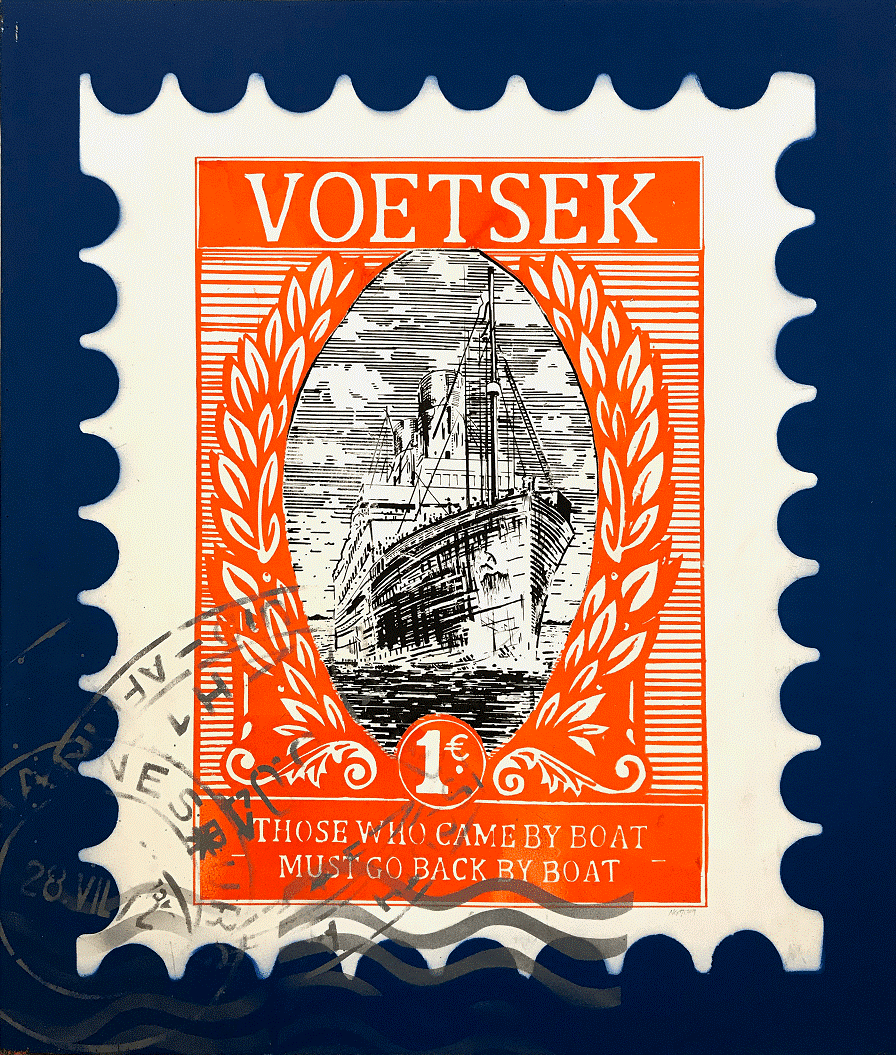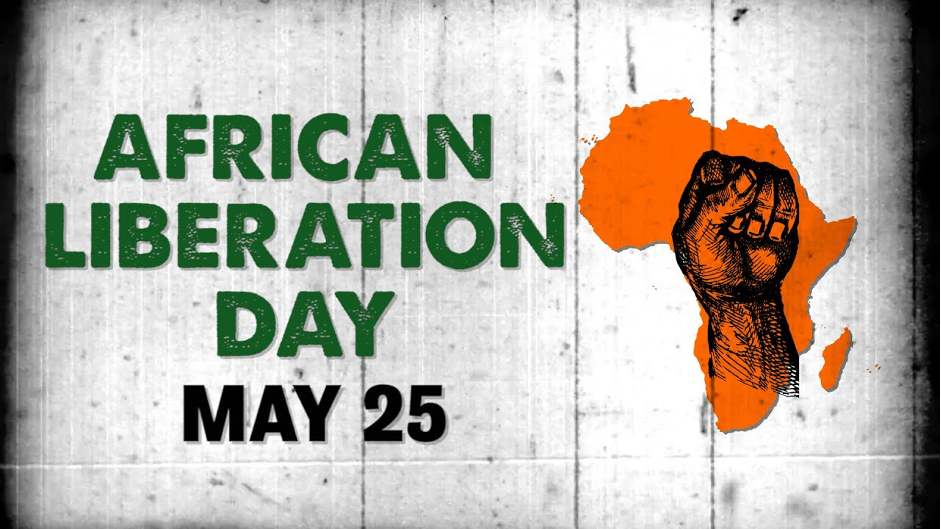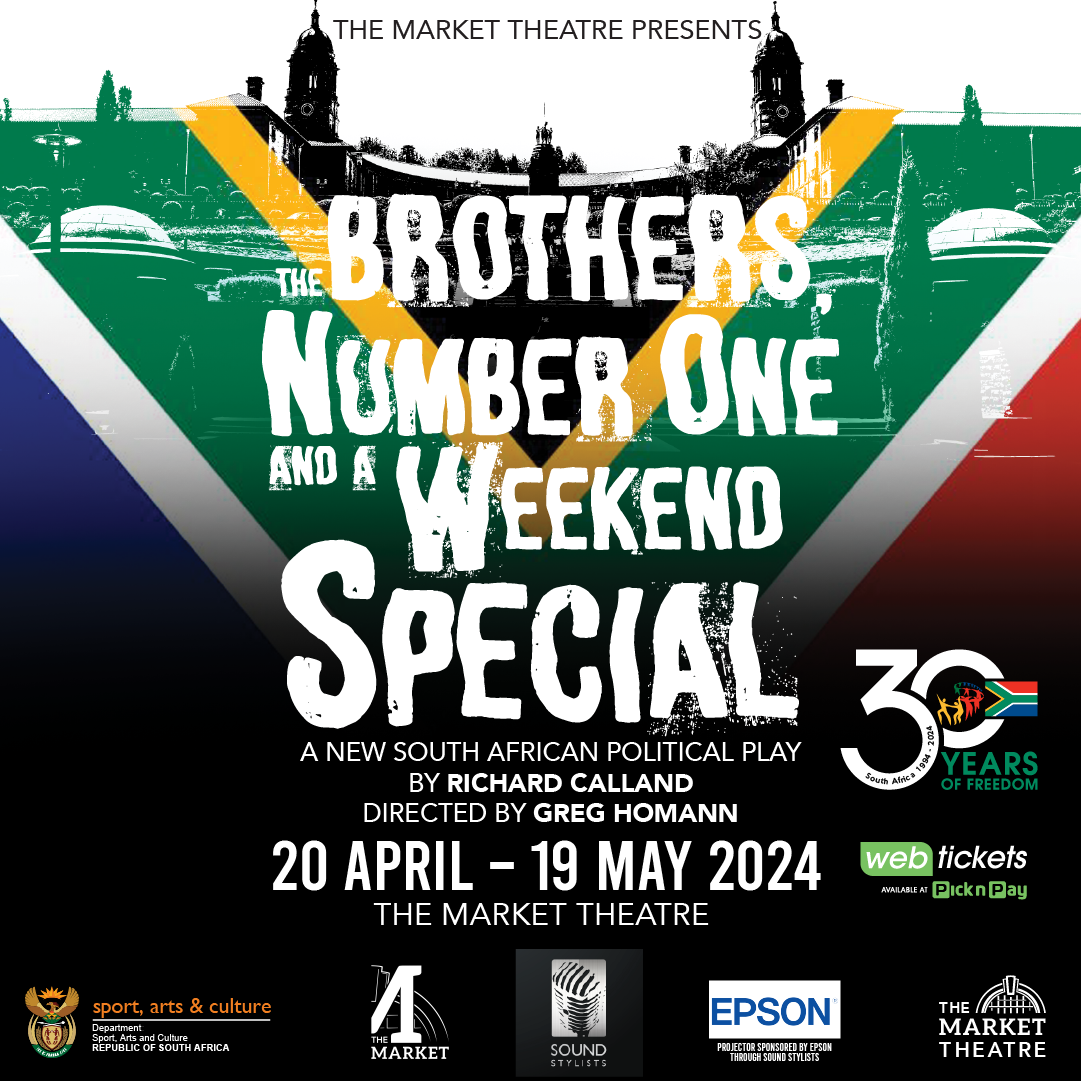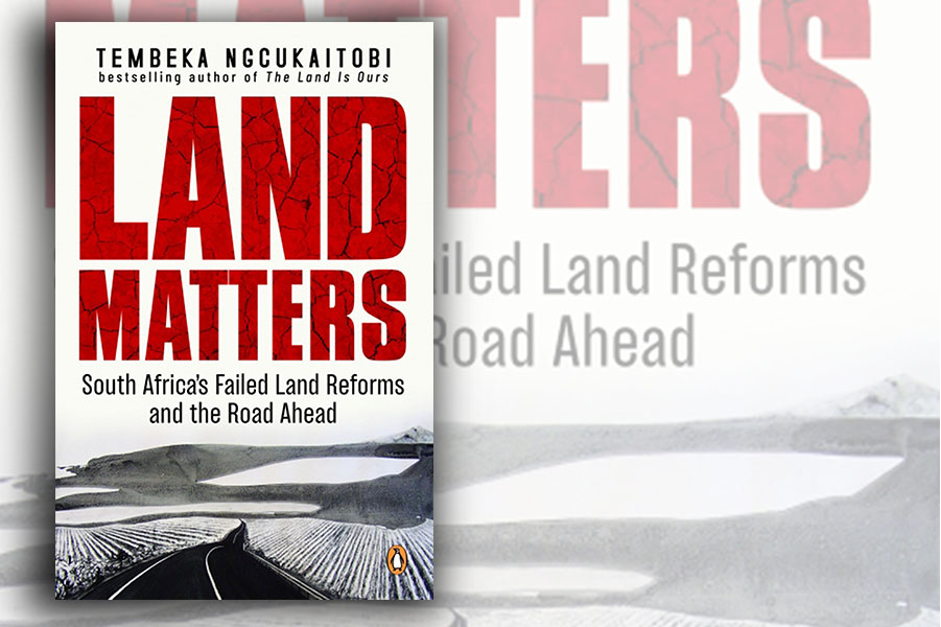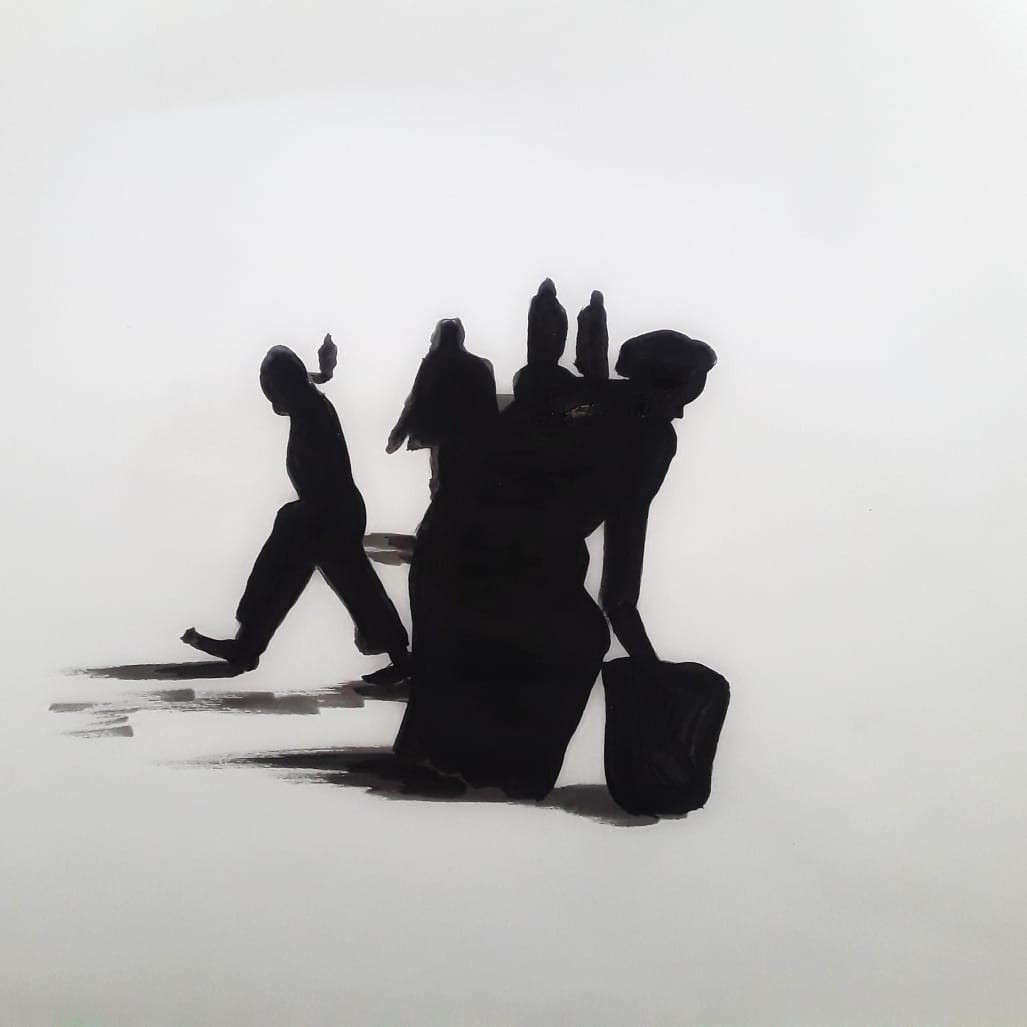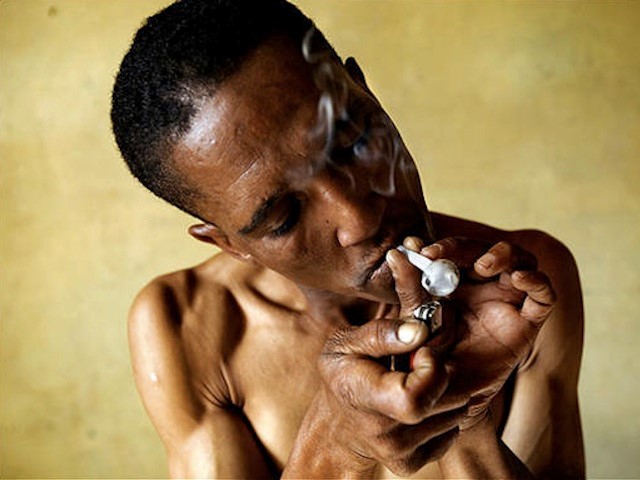In this short article we will critically outline the origin of capitalism in South Africa. The South African ‘radical space’ has recently witnessed the prevalence of the idea of white monopoly capital. This idea is used to critique the economic exploitation of the conquered Indigenous people by white settler capitalists and their international allies, who are said to monopolise the means of production in South Africa to the detriment of the conquered Indigenous people. While the idea of white monopoly capital is helpful in critiquing the dehumanising conditions under which the conquered Indigenous people live, it does not get to the root and the fundamental origin of capitalism in South Africa. The idea of white monopoly capital is premised on the Marxist-Leninist tradition which emphasises class struggle as the central unit of analysis and fundamental contradiction. This implies that the idea of white monopoly capital is not African-centred and therefore fails to get to the root of the prevailing dehumanising conditions of the conquered Indigenous people in conquered Azania. This article will rely on the Black Radical Tradition and Racial Capitalism as developed by Cedric Robinson to explain the racist origin of capitalism in South Africa. The emphasis will be on race and racism rather than on class struggle. This is not to say that class struggle is not important but that it is a secondary antagonism which emanates from racism and conquest as the primary antagonism and root of capitalism in South Africa.
Racism and conquest in the form of land dispossession are the fundamental elements of Racial capitalism (in addition to economic exploitation and the avaricious pursuit of profit). Racial capitalism emerges within Europe before it reaches uninvited the shores of Azania around the 1400s.The historical emergence of Racial capitalism in Europe will be explained at a later stage in the article. In the following paragraphs we will explain briefly the history and meaning of the concept Racial capitalism.
The concept of racial capitalism has a complex history. In South Africa it is associated with the neo-Marxists who became dominant during the 1970s. This neo-Marxist concept of racial capitalism was an attempt by these white settler scholars to critique their fellow liberal white settler scholars’ historiography and critique of Apartheid as a system of racism/white supremacy. Both the white settler liberal scholars and white settler neo-Marxist scholars like Harold Wolpe and Martin Legassick seemed to have focused excessively on Apartheid as a central unit of analysis. This is the fundamental problem and limitation of the scholarship of these white settler scholars. They both failed to explain the fundamental experience and existence of the Indigenous people in conquered Azania by omitting to mention the unjust conquest and its racism since 1652. The racism-ridden existence and experience of the conquered Indigenous people was bound to be conspicuously absent as these white settler scholars were themselves the beneficiaries of racism/white supremacy inaugurated through unjust conquest.
African nationalism which focused on the national question and the question of race were things that seemed to have naturally escaped the analysis of these white settler scholars. What they also failed to comprehend is the fundamental importance of the correlation between conquest and racism since the time of the so-called ‘journeys of discovery.’ They mainly focused their entire scholarly efforts on just a recent facet of racism/white supremacy, namely Apartheid. Azania had already been subjected to more than three hundred years of conquest since 1652 when the rise of the so-called Afrikaners was consummated in 1948. Unjust conquest since 1652 was taken for granted by these white settler scholars. Thus, at the very core of their scholarship is the taking for granted of their very presence in South Africa. Their presence and scholarship are premised on the right of conquest which founded South Africa, its Apartheid and capitalism that they chose to critique. Their presence in South Africa, which is based on the right of conquest, serves as reason to question their scholarship. On what ethical grounds as white settler scholars are they writing about racism/white supremacy as suffered by the conquered Indigenous people?
Since they have been present in conqueror South Africa due to the unjust conquest of 1652, which they took for granted, they erroneously thought that they were thoroughly critiquing racism/white supremacy by challenging Apartheid and capitalism. The horrible date of 1652 seems to have completely escaped their imagination and critique. For this fundamental reason their notion of racial capitalism is flawed.
White monopoly capital has become a very fashionable concept among South African radicals like Christopher Malikane and Andile Mngxitama. Even though the concept deals with the political economy of Post-apartheid South Africa its genealogy is incompatible with the Azanian critical tradition which this article relies on. The Bell Pottinger farce aside, this concept was formulated by the Congress tradition with its absurd Marxist-Leninist concept of Colonialism of a Special Kind/Type and the ridiculous concept of National Democratic Revolution. While this concept relates to the monopoly exercised by whites in mining, industry, agriculture and wealth in general, it fails to rigorously ground capitalism in racism. This concept is imbricated with class analysis and thus the economic reductionism of orthodox/classical Marxism and Marxism-Leninism.
Even though this article will now and then refer to this concept, the preferred concept coming from the Black Radical Tradition is Racial capitalism. This Racial capitalism is different from the one formulated by the radical Left in its debate concerning the compatibility of Apartheid with capitalism. The racial capitalism of the radical Left is historically myopic due to its obsession with Apartheid as a central unit of analysis. White settler colonialism is the fundamental antagonism while Apartheid is just a mere regime. This is why Post-apartheid South Africa is still a white settler State under a different regime. Thus, one has to end South Africa itself to end white settler colonialism and not just its regimes. The restoration of sovereign title to territory through a violent decolonisation is just the primary beginning of the end of South Africa. The primary objective of this violent decolonisation is to de-settle white settlers by expelling them (and killing them especially in cases of resistance) together with their junior partners in white supremacy, the Indians/Asians. This counter process of violent expulsion is historically necessitated by the originary process of violent settlement since 1652. The fundamental point of the violent counter process of expulsion is to avenge the spirit of our living-dead/ancestors and to restore the psychic health and integrity of the living Azanians. This fundamental point cannot be attained through a non-violent process of legislation and policy of land reform and restitution. There must, of historical necessity, be an extra-parliamentary counter process of violent confrontation between the liberation forces of Azania and the white settlers together with their junior partners, the Indians/Asians (which was postponed by the so-called negotiations).
These enemies of Azania should vacate Azania and return to their motherlands in terms of the Garveyite philosophy of ‘Africa for the Africans’, thus by extension ‘Europe for the Europeans’ and ‘India/Asia for the Indians/Asians’. The violent decolonisation will be informed by Lembede’s Africanism as opposed to Biko’s Black Consciousness philosophy which includes Coloureds and Indians. This article regards Europeans and Indians as aliens/foreigners in Azania (along the lines of the Four-Nations-Thesis as discussed among others by AP Mda and Neville Alexander). Coloureds will be treated as an epiphenomenon of the unjust conquest since 1652. Coloureds will be given the moral challenge of choosing to convert to African culture/Botho/Isintu or to follow both the Europeans and Indians/Asians to their respective motherlands. This is because unlike Europeans and Indians/Asians, Coloureds do not have their own motherland and some of them have African/Indigenous blood. A very small number of Coloureds will pass the moral challenge since most of them obstinately identify with the culture and language of white settlers and their junior partners, the Indian/Asians. The few who pass the moral challenge will have to fight alongside Azanians, against white settlers, their junior partners, the Indians/Asians and the Coloureds who fail the moral challenge. However, it should be borne in mind that in terms of Africanism the moral challenge is a ‘generous gesture’; since the fundamental and preferred option is to expel Coloureds together with the white settlers and their junior partners, the Indians/Asians, since most of them will fail the moral challenge.
According to this article Indigenous people are the black Africans who were conquered in unjust wars of colonisation. The San and Khoi and the so-called Bantu (the correct term is Abantu with the ontological prefix Aba-) are the Indigenous people for the purposes of this article. Only these black Africans are indigenous to Azania, the rest are Europeans/non-Africans/non-Europeans. The Indigenous people are native to Azania; thus, they are the Azanians. In other words, just like Kemet (the so-called ancient Egypt) Azania is ‘the land of the black Africans’. By following Lembede’s Africanism this article rejects Biko’s Black Consciousness’ concept of blackness which includes Coloureds and Indians. The fundamental point of departure and criteria are African/Indigenous culture and sovereign title to territory since time immemorial as opposed to mere racial oppression and discrimination in the wake of white settler colonialism.
The disastrous coming of the Europeans to the shores of Azania entailed the commencement of Racial capitalism as formulated by Cedric Robinson in conqueror South Africa. The Portuguese and the Spanish attempted to invade Azania as early as the late 1400s. Da Gama and Diaz are some of the Europeans who pioneered the catastrophic coming of the Europeans to Azania. These white strangers were on their criminal campaigns of conquering the world and inaugurating the nomos of the earth. Racial capitalism does not begin with the rise of industrial capitalism and Apartheid. It commences with the unjust wars of conquest of Azania by the Dutch East India Company in 1652. By the late 1800s, when white settlers ‘discovered’ diamond and gold, the conquered Indigenous people were already centuries-long victims of mercantile capitalism. The mercantile capitalism, which is European and thus, inherently racist, was accompanied by series of unjust wars of land dispossession and resistance on the part of the Indigenous people. Mercantile capitalism, later industrial capitalism, was an extension of a racist European economic system to the world and for the purpose of this article; Azania. The infamous debate between Sepulveda and Las Cassas about, among other things, the ontological status of the Native Americans/Indians by the Spanish conquerors who looted the wealth and dispossessed their victims of their land, is a spectacular illustration of Racial capitalism.
It is important to bear in mind that most of the vicious acts that the white strangers inflicted on the Indigenous people were characteristic of Europeans. They had already practiced the same vicious acts on each other while they were still confined in Europe. At the very origin of Racial capitalism is the racism and conquest of the Irish by the English. Thus, both racism and conquest which underlie Racial capitalism began in Europe by the Europeans among themselves. The Irish were conquered and dispossessed of their land among other things on the basis that they are an inferior race. The hierarchy of races in terms of the Nordic, Teutonic and Aryan, which would be perfected by Hitler between 1930 and 1940, is something that is foundational to European culture and civilization. The Great Chain of Being (which creates a hierarchy of inferior and superior beings and races) is foundational to European thought, culture and worldview as Marimba Ani has argued.
Racial capitalism of the Black Radical Tradition is grounded in the long-duree analysis. It commences with an elementary genealogy of European civilization. This makes apparent the idea that racism precedes and grounds capitalism in Europe before it reaches the shores of Africa. Racism is internal to European civilization as the Europeans practiced some kind of racial domination in Europe before European Imperialism was embarked upon by Europeans to save themselves from their civil wars of collective self-destruction. Even though, historically speaking, industrial capitalism proper in South Africa begins with the so-called discovery of diamond and gold; the unjust conquest of 1652 took place in the midst of mercantile capitalism which was inherently racist from its origin in Europe. Land dispossession through European concession companies was based on racism/white supremacy. Contemporary multinational companies are successors in title to the unjust conquest of 1652 by the VOC. In this sense Racial Capitalism has come full circle.
The fundamental reason why this article prefers the concept of Racial capitalism in the sense of the Black Radical Tradition is that it allows the critique of the political economy of South Africa and Post-apartheid South Africa to commence with 1652. By doing this it lays down the foundation for the end South Africa thesis as opposed to the radical economic redistribution thesis of the radical critics of white monopoly capital. White monopoly capital just like Apartheid is not the fundamental problem but South Africa itself is, as this article endeavours to demonstrate.
The struggle is not one of the black working class (ala Marxism-Leninism of Malikane 2017) or of blacks (ala Black Consciousness of the BLF of Mngxitama which/who includes Coloureds and Indians) but of the Azanians/Indigenous conquered people as an African/Azanian nation (Sechaba/Isizwe) to restore their rightful sovereign title to territory by a violent decolonisation as opposed to a policy-based redistribution of wealth among all South Africans ala the ‘Freedom Cheater’ as Motsoko Pheko calls the Freedom Charter. The contrast between violent decolonisation and policy-based redistribution is one of the distinction between the politics of revolution and politics of efficiency/reform (what is urgently needed is an African/Azanian peoples-only and led militant liberation movement organised on the basis of African culture as opposed to the current farcical reform-oriented party-politics).
White settler colonialism interrupted the autonomous and natural evolution of African culture, society and history. Thus, African revolution is a historical necessity to restore this autonomous and natural evolution and to speed it up. For the purposes of this article white settler colonialism is a racist system and structure of white domination and exploitation which was inaugurated with unjust conquest since 1652 by European conquerors who became settlers through violent land dispossession (unjust wars of colonisation for centuries). Given the history of Africa/Azania, all settlers (‘they come from somewhere’ as Fanon would put it in The Wretched of the Earth, since the entire continent of Africa belongs to all Africans no African can ‘come from somewhere’ in Africa ala the absurd colonial Bantu migration thesis and Afri-forum historiography that is confusing other Africans/Azanians such as the Khoi and San people) are white and all whites are settlers because of the structure of white settler colonialism which was created since 1652 with land dispossession. Africans have always migrated across the continent for thousands of years before there was such a thing as whites (who now under a racist delusion assume to know more about us than we do). Since whites who became settlers were European, they were/are inherently racist because of the endemic nature of racism in European civilization. In other words, white settler colonialism is an instantiation in Azania/South Africa of global white supremacy which reached its summit around the 16th centuries with the European/white criminal campaigns euphemistically called journeys of discovery.
The origin of racism has a complex history which has been analysed by many scholars. Most scholars who attempt to explain the origin of racism are Europeans and thus mainly limit it to its religious dimension (such as anti-Semitism and the fear and hatred of Islam) and consummation around the 1500 with the Atlantic slave trade and slavery (which were premised among other things on the Hamitic curse). This article will not attempt to give a comprehensive analysis of the origin of racism. Because this article will briefly underscore the importance of racism in understanding the nature and origin of the political economy of white settler colonialism, it will concisely explain and analyse racism from an African-centred perspective. The fundamental assumption is that racism is functional to white supremacy thus racism/white supremacy as Welsing argued.
Whiteness is inherently (endemically racist European civilization) and structurally (white power and domination in this order) racist thus a non-racist, non-racialist or anti-racist white is a ridiculous and at times arrogant contradiction in terms. This also aptly applies to the conscience-embalming silly oxymoron (pun intended) of a ‘good white’ and the humorously redundant ‘bad white’ (you might as well make a foolish distinction between ‘good racism’ and ‘bad racism!’). Racism needs whites and whites need racism. It was invented by whites and for whites, thus all racism is already white (all other forms of racism are imaginary historically speaking).
Therefore ‘white racism’ is an absurd concept as it is like saying ‘racist white supremacy’! All whites are racist they cannot be not racist. Others who are not white (not that they are supposed to be at any rate) can be anti-black and anti-African, but due to their racism whites are already anti-black and anti-African. What distinguishes whites is that they are anti-black and anti-African plus they have white power which they have attained and accumulated through multi-centuries of cultural domination, genocide and economic exploitation. In Post-apartheid South Africa, just like at any other time in South Africa for that matter, due to the centuries-long structure of white settler colonialism whites do not have to indulge in spectacular exhibition of their racism; they are already racist. The less crude whites/racists (these two concepts are synonymous or interchangeable) even cringe at the unsophisticated overt display of racism/whiteness by their undiplomatic fellow whites/racists.
Although racism was solidly institutionalised during the so-called journeys of discovery, the sentiment and mentality trace their origin to a very long history in Europe. Diop’s Two-cradle theory as explained by Wobogo, is the basic foundation of this article’s understanding of racism. According to Diop the Aryans/Indo-Europeans who occupied what is now known as Europe were characterised by xenophobia, aggression and predilection for conquest. This complex of ideas and proclivities Diop designates the Northern cradle. Diop traces the origin and nature of the Northern cradle to the glacial environment, the existence and history of the Aryans/Indo-Europeans. Thus, in terms of the Northern cradle white settlers and Indians are genealogical related thus fundamental enemies of the Azanians since time immemorial, the difference is one of power at a particular point but not culture and history. The destruction of the Dravidian civilization of the Azanians by Indo-Europeans and the dehumanisation of the ‘Untouchables’ (African-descended people) by Indians in India, as documented by Runoko Rashidi, is a spectacular example (in this sense the anti-African Gandhi is just a famous typical Indian).
Diop’s notion of the Northern cradle helps us to explain why the Aryans who later called themselves Europeans mainly after the fall of the Roman empire and later the expulsion of the Moors, Africans and Jews in Spain and Portugal (then called the Iberian peninsula) in 1492 as explained by Ivan Van Sertima, were characterised by racism and desire for conquest. The fear and hatred of the other and the desire to conquer the other are fundamental to Aryan/European culture and civilization. This is not to say that only the Europeans have indulged in some kind of internecine battles and conflicts, but it is to accentuate that xenophobia and the desire to conquer are the dominant traits of the Aryans/Europeans - their long history bears this out. Engels and Marx were merely formulating a materialist history of Europe when they Eurocentrically held that “the history of the world is the history of class struggle.” The celebration of war in Greco-Roman-European mythology and philosophy are the intellectual manifestation of these dominant traits of xenophobia and desire to conquer.
When the Europeans arrived uninvited to the shores of Azania, xenophobia and the desire to conquer which are ingrained into their history, culture, identity and civilization were centuries old. Of course, there are several reasons why at the time of their arrival these Europeans wanted to conquer Azania as they already did other parts of the world, like America. The desire to make profit is the economic reason why the Europeans conquered Azania. European Imperialism for the purposes of accumulation of profit underlay mercantile capitalism of the so-called journeys of discovery. But underlying this economic reason was the ontological justification which was the racist idea that the Indigenous people were not human or rational animals. Thus, the catastrophic coming of the Europeans was premised on, among other things, the economic and ontological reasons stated above. Profit and the dehumanisation of the Indigenous people are foundational to the political economy of white settler colonialism and not just Apartheid.
The profit motive and racist ontology went into the making of the doctrine of Discovery as explained by Miller and these two reasons reinforced each other in the process of unjust conquest since 1652. The reserves and influx control measures which were pioneered by the English settlers and later consummated by their racial cousins the so-called Afrikaners (the correct name is Dutch settlers) were the later reconfiguration of land-appropriation which is foundational to the political economy of white settler colonialism.
Mercantile capitalism at the time of the catastrophic coming of the Europeans was inherently racist. The philosophical anthropology which underlay this capitalism was that man is a rational animal and this Aristotelian notion excluded the Indigenous people as Mogobe Ramose has argued. The obsession with savages and barbarians is internal to Greco-Roman-European culture and history. This obsession reflects the centuries old Northern cradle as explained above.
The Dutch settlers as the servants of the VOC (Dutch East India Company), who occupied the so-called Cape of Good Hope, were agents and beneficiaries of a racist mercantile capitalism. This article is aware that International law of colonialism or the law of nations underlay the unjust conquest since 1652. Since this is not a jurisprudential critique of white settler colonialism, this article will not focus on the doctrine of Discovery which also went into the making of the unjust conquest since 1652; following papal bulls which authorised conquests and invasions.
What this article seeks to accentuate is that foundational to Racial capitalism is the loss of sovereign title to territory by the Indigenous people. This means that the legislative dimension and juridical aspect of white settler colonialism in the form of Apartheid are not the fundamental problem. The point is not how the legislative framework which was introduced by the Union of South Africa and later the Republic of South Africa facilitated the economic exploitation of the labour power of the conquered Indigenous people. This is because the change in the legislative framework cannot alter the fundamental nature of the political economy of white settler colonialism. The persistence of Racial capitalism in Post-apartheid South Africa is a clear example that the alteration of the legislative and juridical nature of South Africa without the restoration of sovereign title to territory to its rightful owners cannot destroy Racial capitalism. The policy framework of the current black government can only result in the inclusion of the conquered Indigenous people who were excluded by Apartheid. This approach cannot destroy Racial capitalism. White monopoly capital was accumulated since 1652 with unjust conquest and cannot be destroyed through a policy framework. Only an African revolution whose primary aim is to restore land to the Azanians by expelling white settlers and their junior partners, the Indians/Asians, can inaugurate the extirpation of Racial capitalism.
Racial capitalism was not inaugurated through a legislative and policy framework but through violent wars of land dispossession. Thus, the only way to eliminate Racial capitalism is through a counter process similar in nature. An African revolution which is a war of land restoration is the only way to restore land to the conquered Indigenous people and end Racial capitalism and South Africa as we know it. When Van Riebeck invaded Azania the VOC got land through a process of unjust wars in which he claimed that the conquered land now belongs to the Dutch settlers. Land-appropriation was followed by land-division in which the Dutch settlers were given pieces of land to farm and thus coerce the conquered Indigenous people into working for them. At the very core of Racial capitalism is the white master and Indigenous servant/slave relation which still persist to this day, both in farms and corporations. The fundament of this Hegelian relation is loss of sovereign title to territory. This Hegelian relation is reinforced by policy framework of inclusion such as BEE which attains the Hegelian recognition as opposed to the death of the white settler master.
This white settler master and Indigenous slave relation was inaugurated by land-appropriation. The Albany settlement by the British was just an extension of what the Dutch settlers had already inaugurated in the so-called Cape since 1652. The land-division that follows the founding act of land-appropriation only consolidates Racial capitalism. At the founding moment of Racial capitalism is an originary violent confrontation. Thus, its end can only be effected through a similar counter process. The so-called Kaffir Wars/frontier wars were among other things an early attempt by the Indigenous people to reverse by a similar counter process an unjust conquest.
The founding land-appropriation was a way of introducing a colonial mode of production. Racial capitalism was imbricated with European Imperialism. White settlers like Cecile Rhodes saw the need to export the European surplus population to the colonies to prevent societal turmoil and upheavals raging in Europe. The enclosures inaugurated by the bourgeois in Europe resulted in the European peasants losing their land. These landless Europeans were compensated by being given lands in colonies. The coming of the Europeans had nothing to do with bringing civilization but to rescue Europe from itself. In other words, the exportation of Racial capitalism to Azania was a way of attaining collective preservation by Europeans. The elimination of Racial capitalism should ultimately aim at the opposite effect as far as the Europeans are concerned.
This is why land-appropriation was fundamental to racial capitalism in Azania. Many of the landless European peasants were regarded as inferior by the bourgeois who dispossessed them of their land. They were reduced to criminals who were dismissed as inferior. But as soon as they were exported to Azania, they became white thus of a superior race. This is why as soon as they arrived, they were given pieces of land by the VOC through the free-burgher system. This land allocation was a process of introducing capitalism as a mode of production.
Underlying this process of land allocation to Europeans was the racist idea that the Indigenous people did not know how to use the land productively (i.e. in terms of the dictates of Racial capitalism and Imperialism). Thus, the introduction of European/Racial capitalism was a way of bringing progress to a dark land occupied by barbarians (a persistent racist delusion). This is why Rhodes could arrogantly state that “I prefer land to kaffirs/niggers.” Profit and race were the underlying pillars of Racial capitalism. Capitalism does not cause racism as Eric Williams seems to suggest. On the contrary racism is inherent in European culture and civilization; capitalism is just an economic system born out of a racist culture and civilization. Modes of production and economic systems reflect their culture and civilization. It is the people who create modes of production, thus if these people are racist then their racism will be reflected in what they create. Even if capitalism was destroyed as long as there are Europeans in power there will be racism. This is why Cuba while a socialist country could still practice racism. The fundamental problem is Europeans themselves, not just what they create. To deal effectively with racism you have to start with Europeans and not just focus on what they create (this is very important for the purposes of African revolution; to be effectively anti-white power you have to be anti-white, there is no other serious way to do it). Because it is the Europeans who are racist and a fundamental problem, even if socialism was a dominant mode of production, we will still have Racial socialism (this is why the racism of Karl Marx and other European socialists is not surprising). In this sense African socialism as theorised by Nyerere should be preferred to the so-called scientific socialism. ‘Scientific socialism’ will still be premised on the inherently racist European culture and worldview. Besides, logic dictates that we base our mode of production on our own African culture and worldview as we did since time immemorial. Robinson’s concept of Racial capitalism helps us to comprehend the fact that as long as land, a fundamental means of production in capitalism as a mode of production, is still in the hands of white settlers (irrespective of the percentage - white settlers should not be in Azania to start with), racism and the economic exploitation of the conquered Indigenous people will persist. This article is not a comprehensive historical analysis of land dispossession. This implies that it will not concern itself with the minute details of how unjust conquest took place. There are many historians (Magubane 1996, Majeke 1952 and Jaffe 1994 just to mention a few) who have done this job expertly.
This article is aimed at demonstrating the link between Racial capitalism and racist unjust conquest since 1652. In conclusion, this article has drawn a link between Racial capitalism and unjust conquest since 1652. In doing so, this article has alluded briefly to the flaws of the neo-Marxist notion of racial capitalism which focuses on the connection between Apartheid and capitalism. This South African version of racial capitalism (a product of South African Marxism with its inherent racism) was shown to be flawed not only because it was formulated and used by white settler scholars but also because it fetishes Apartheid and thus omits unjust conquest since 1652. It misses the fundamental origin of the political economy of white settler colonialism which is land dispossession in unjust wars of colonisation since 1652. This article has argued in favour of Robinson’s concept of Racial capitalism which we used to trace the origin and accumulation of white monopoly capital to unjust conquest since 1652. Robinson’s Racial capitalism helps us to realize that when the Europeans arrived uninvited in Azania they were already racist and exporting their racist mercantile capitalism, which later, around the 1800s, evolved into industrial capitalism. It is this inherently racist mercantile capitalism which underlay the unjust conquest of Azania since 1652 initially by the Dutch settlers and later by the English/British settlers who are still in our midst today in conquered Azania. Only a chimurenga can reverse the catastrophic coming of the Europeans to Azania by expelling them and their Racial capitalism back to Europe. This will inaugurate ‘the fall of South Africa and the rise of Azania’ on the premise of Africa for the Africans to the total exclusion of non-Africans such as all Europeans, Asians/Indians/Arabs and Coloureds who fail the moral challenge above, a very generous offer.

